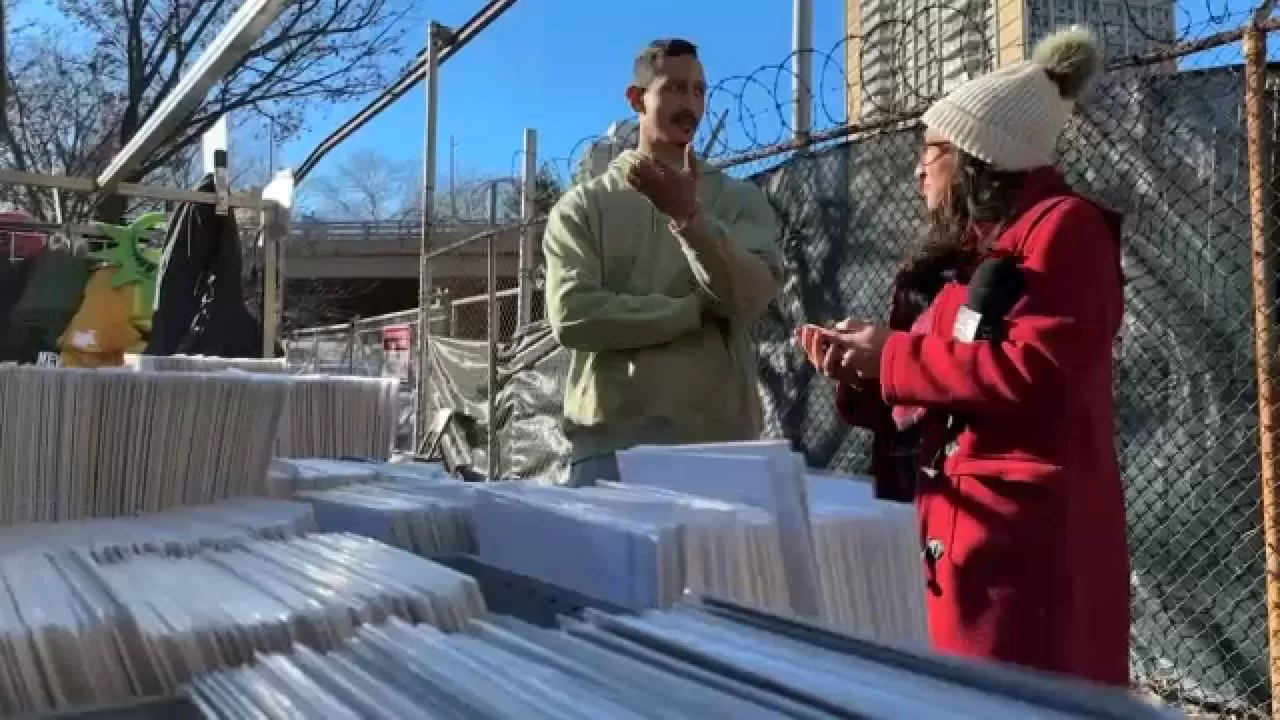Since the measure proposed by the Department of Transportation went into effect on January 3, which prohibits the presence of street vendors on the city’s bridges, several have moved to the Washington and Prospect streets section in Dumbo right next to the stairs that take you to the Brooklyn Bridge, a very popular point for tourists.
“Every day I am very stressed. Coming to work every day, stressed, very stressed,” says Hossam Khedr, a salesman who was previously on the Brooklyn Bridge.
Sellers like Hossam say that, although they have permits and all the requirements to sell, they feel harassed by the high presence of authorities and discriminatory comments from residents of the sector. He adds that, with difficulty, he manages to earn about 50 dollars a day. He suggests that a partnership between the city and vendors would be a solution:
“Talking with the government here, the mayor here to have a solution is how to have a kiosk, pay to rent, so that the city here has money or receives money,” adds the merchant.
For its part, the Adams Administration has said it will continue to monitor the Brooklyn Bridge, and is communicating directly with vendors to help them identify existing spaces where they can legally sell. Although, they have not relocated these people to a specific location.
The Parks Department, in charge of supervising the sector, is ensuring that these people, the vast majority of whom are immigrants, have the licenses and permits to sell on the street.
On the other hand, residents, like a couple of mothers, are very upset, and even shared images of the sellers’ use of gasoline for electric generators:
“They have also been camping here overnight, they stay all night, they keep their things in the white van that you see there, there is more garbage and it has become very difficult to navigate the street,” says Fernando Seelos, neighbor of the sector.
The Street Vendor Project, an organization that supports vendors, says one solution would be legislation – already proposed by Councilwoman Gale Brewer – that better regulates and actually supports workers:
“This proposal focuses on that, on allowing or reducing bridge congestion by limiting the area where one can sell and have commercial activities. Basically what it proposes is to allow vending in the area of the bridges where the pedestrian path measures a minimum of 16 feet wide or more,” emphasizes Eric Navas, organizer of The Street Vendor Project.




